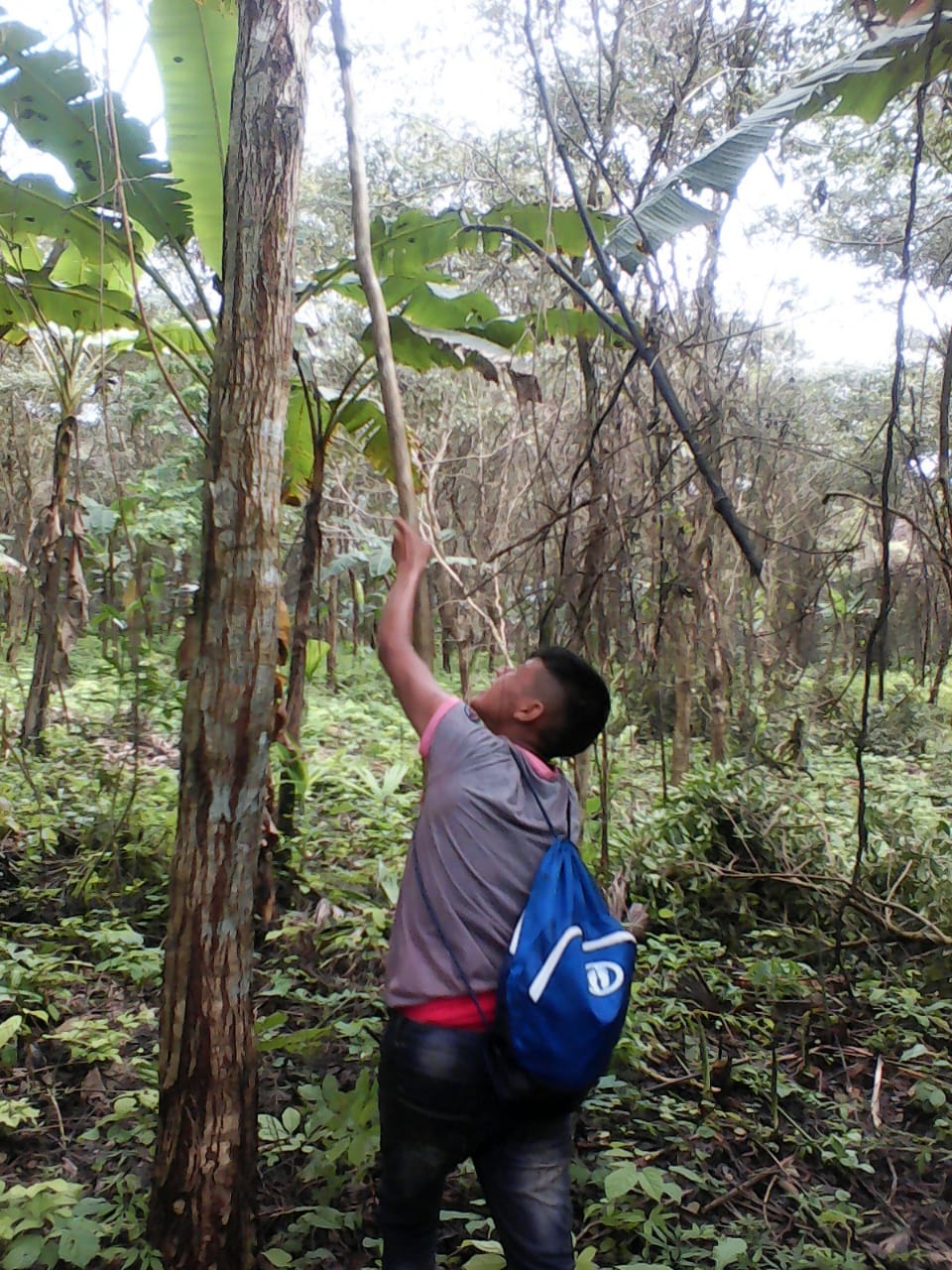March 2020 Field Update
/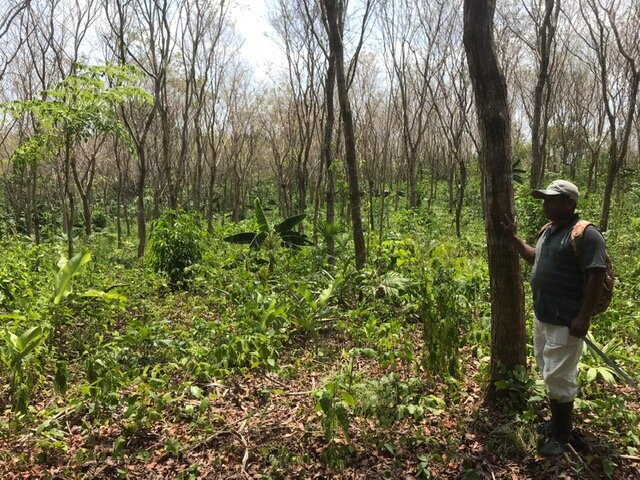
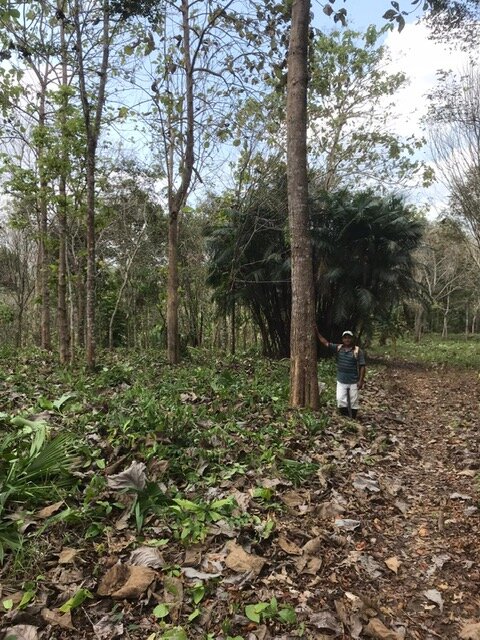
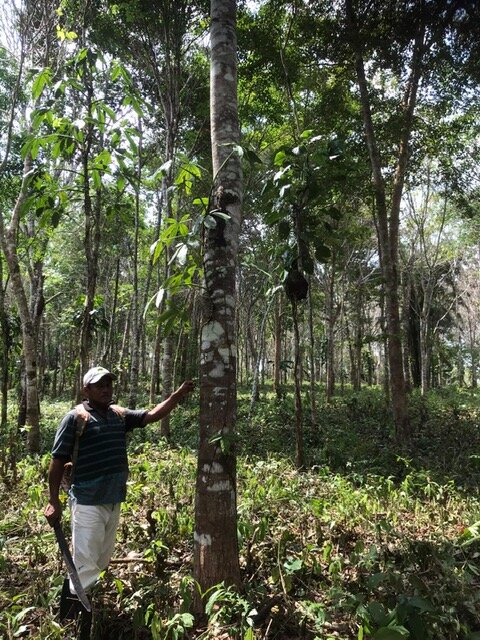
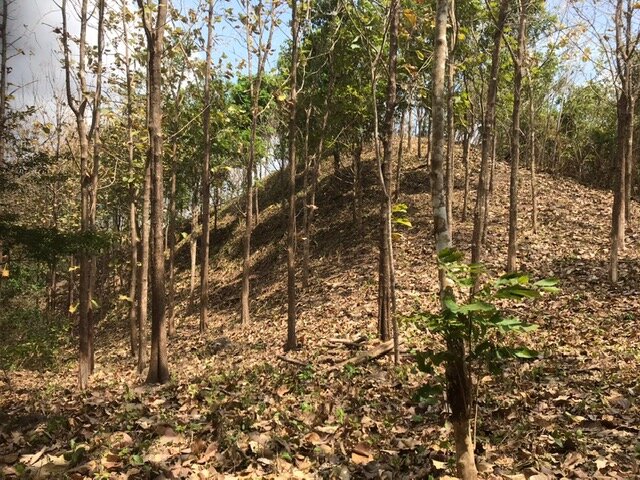
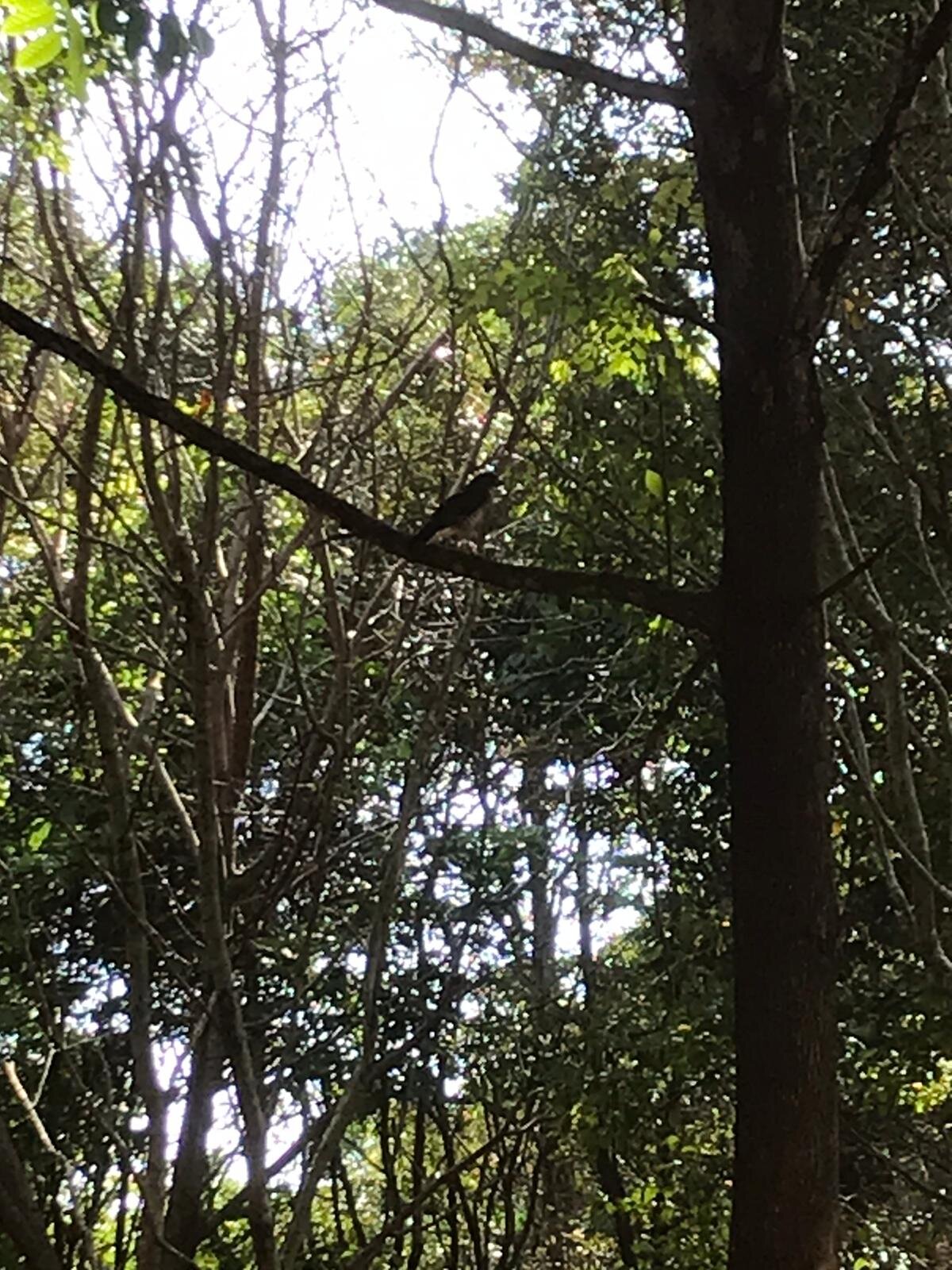
I recently returned from a visit to Panama and Planting Empowerment’s forests (we call them forests and not plantations because of our mixed species and community-centric approach). I’m happy to report that our planted forests—the oldest are now 13 years old—are showing good growth and their individual characteristics are becoming more prominent. I also caught up with Yem Dogirama, one of our long time field technicians who cares for the trees and keeps an eye on things.
Our oldest forests are now past their half way mark and the trees definitely have attained girth and height. The Teak in general are the tallest and are now filling their trunks out, but the “Yellow wood” or Amarillo are as tall and wide as the Teak. The Mahogany trees have really taken off in the last couple of years, too, and their canopies are completely shading the undergrowth below them.
From a biodiversity stand point, I spotted a young hawk perched midway up one of our trees, studying me as I approached it. I came to the base of the tree and he didn’t fly away—he was probably confused as to what I was doing in his hunting territory.
Yem expressed his excitement about the fruiting of the Almendro or “almond trees.” The indigenous communities collect the seeds, boil them, and basically make a nut butter from them. It’s considered quite the delicacy. The animals also really like them and you can see the remnants of their feasts under the trees.
Disappointingly, the Zapatero or “shoe maker” trees continue to die off. For some reason that we’ve never discovered, this species acquires a fungus, which attacks the tree aggressively and ends up killing it in about 6 months. They were quick growing and beautiful trees, so I hate to see the dead trunks and holes in the forest where they used to be. On a positive note, the birds are using them for nesting, so it’s not wasted space and we can feel good about supporting more bird habitat. We still have a couple left in each forest and I hope they can survive so we can collect those surviving examples’ seeds for future plantings.
We do not have a full-time team staff in Panama any more because our planted forests do not require full-time work. I’ve been pleased to hear from our longtime workers—now part-time—that they’re really invested in the success of our forests and take pride in how big some of the trees are. They of course have put in the most work to ensure that the trees are thriving. Because they work now full-time in other monoculture Teak forests, they appreciate the different approach we’ve taken.
Thanks again for your support and as always, please do let us know when you might be in Panama as our operations are always open for visits.


